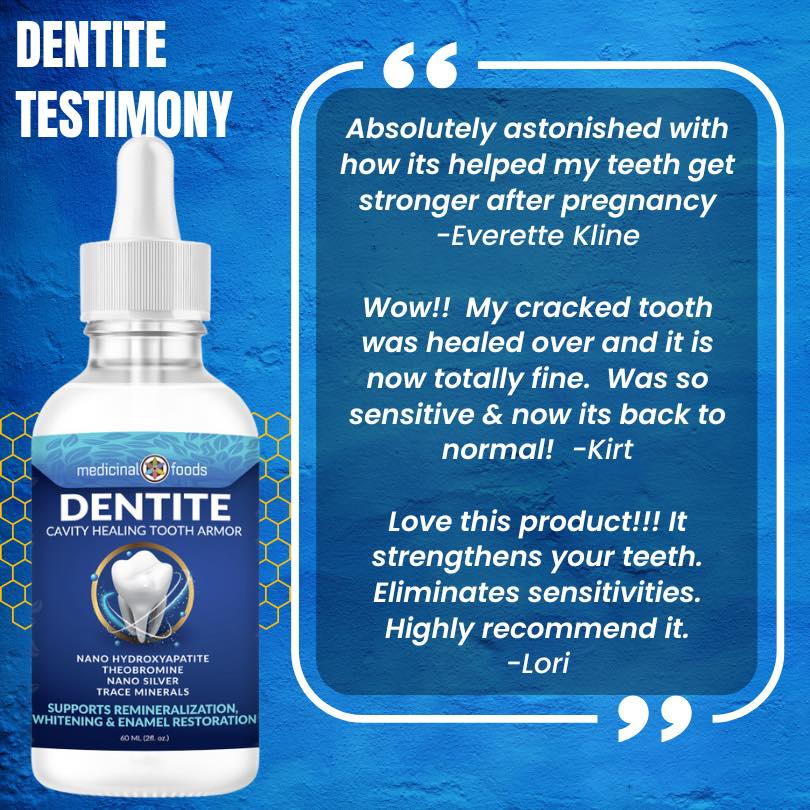Acid Erosion and Tooth Sensitivity: How Acids Weaken Enamel and What You Can Do About It
If you sip soda, love citrus, or even enjoy sparkling water, you’re bathing your teeth in acid. Over time, those acids slowly dissolve the protective enamel layer, leaving your teeth weaker, more vulnerable, and much more sensitive.
But here’s the key: acid erosion is a slow burn. Unlike grinding (bruxism) or whitening, which can destroy enamel fast, acid erosion usually builds up over years. That doesn’t mean it’s harmless — it just means you often don’t notice the damage until sensitivity becomes a constant part of your daily life.
How Acid Erodes Tooth Enamel
Enamel is made of tightly packed minerals, mostly hydroxyapatite. When acids hit, they lower the pH in your mouth and dissolve those minerals — a process called demineralization. Normally, your saliva can buffer some of that damage and even help remineralize. But if you’re constantly feeding your teeth acid, the balance tips, and enamel starts to thin.
The danger zones include:
-
Soda and energy drinks — loaded with acid and sugar.
-
Citrus fruits — lemons, limes, and oranges hit enamel hard.
-
Vinegar-based foods — pickles, dressings, sauces.
-
Sparkling water — less aggressive than soda, but still acidic enough to matter over time.
-
Acid reflux — stomach acid coming up is even stronger than food-based acids.
Every exposure chips away at enamel, little by little. Over months and years, those tiny losses add up.
The Connection Between Acid Erosion and Sensitivity
When enamel thins, dentin is exposed. Dentin is full of microscopic tubules that connect straight to your tooth’s nerve. That’s why a cold drink suddenly hurts or why brushing makes you flinch.
Unlike grinding, which causes mechanical destruction, or whitening, which dehydrates and opens tubules, acid erosion works chemically. The result is the same: weaker enamel, more sensitivity.
Why Acid Alone Isn’t the Whole Story
Here’s the part nobody explains: acid erosion by itself usually isn’t the fastest driver of sensitivity. It’s when acid teams up with grinding or whitening that things spiral out of control.
-
Grinding thins enamel → acids wear it away even faster.
-
Whitening dehydrates enamel → acids slip in and erode more deeply.
Acid makes other enamel stressors more destructive. That’s why it still matters, even if the damage is slower.
The Problem With Ignoring Acid Damage
Many people shrug off acid because the effects aren’t immediate. But acid erosion is cumulative. Over time, enamel thins so much that:
-
Teeth appear more yellow (dentin shows through).
-
Edges chip easily.
-
Sensitivity becomes constant.
-
Cavities form more easily because acid creates a perfect environment for bacteria.
By the time you notice these changes, a lot of enamel is already gone.
Why Sensitive Toothpaste Isn’t Enough
As with other causes of sensitivity, people usually reach for sensitive toothpaste. But again, these pastes only mask the problem. They block nerve signals without stopping the ongoing acid erosion. And because they use only small amounts of nano-hydroxyapatite, they don’t actually replenish what the acid has stripped away.
You can’t “out-brush” acid damage. You need to rebuild enamel at the mineral level.
How Dentite Helps Against Acid Erosion
Dentite isn’t designed to stop acid from ever touching your teeth — nothing can do that. But it’s designed to make enamel stronger and more resilient against acid.
Here’s how:
-
Restores lost minerals. Dentite delivers enough nano-hydroxyapatite to actually replenish enamel.
-
Seals open tubules. By repairing enamel, it cuts off the nerve pathways acids expose.
-
Creates a protective shield. Stronger enamel resists acid attack far better than thin, weak enamel.
Think of it this way: if acid keeps raining down on your teeth, Dentite is the umbrella that keeps you dry.
Practical Steps to Reduce Acid Damage
While Dentite strengthens enamel, lifestyle matters too. A few simple tweaks can slow the rate of erosion:
-
Rinse with water after acidic foods. Don’t brush immediately — enamel is softest right after acid exposure.
-
Use a straw for sodas and juices. Keeps acid away from front teeth.
-
Limit grazing on acidic foods. Constant exposure is worse than occasional treats.
-
Address acid reflux. If stomach acid is the culprit, medical treatment is key.
Pairing these habits with Dentite creates the strongest defense.
The Bigger Picture
Acid erosion may be slower than grinding or whitening damage, but it’s relentless. Day after day, year after year, acids wear down enamel until sensitivity takes over. And because enamel can’t regenerate on its own, ignoring it only guarantees more pain — and more expensive dental treatments later.
Dentite changes the game by giving you a way to restore what acids take away. By continuously rebuilding enamel at the mineral level, Dentite makes your teeth more resistant to acid attacks and keeps sensitivity under control.
Final Thought
Tooth sensitivity isn’t caused by acid alone, but acids are the silent partner in most enamel problems. Whether it’s soda, citrus, or reflux, the result is the same: thinner enamel and exposed nerves.
You don’t have to give up your favorite foods to keep your smile strong. You just need to fight back against the damage they cause. Dentite gives you the daily reinforcement your enamel needs — protecting you from acids, cutting off sensitivity, and keeping your teeth strong for the long run.









